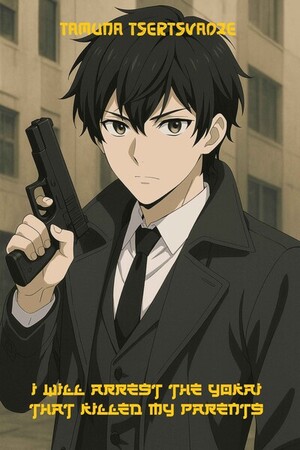Chapter 9:
Chapter 9–The Weight of the Glove
Even Broken Wings Can Fly
The late afternoon sun cast golden light across the yard, its warmth brushing over the old wooden shed like a gentle memory. Akaru stood still at the threshold, staring at the box in the corner. Dust hung in the air, disturbed only by the faint creak of the door behind him.
He hadn’t come here to remember.
But memory found him anyway.
He knelt and opened the box. Inside lay the glove — his glove — stiff with time but still familiar. A fragment of who he used to be.
The air felt heavier.
“Still fits?”
He turned, startled.
Himari stood at the doorway, leaning casually — but there was a tremor in her legs, a pale tightness to her smile. She hid it well. She always did.
“You followed me again,” Akaru said, setting the glove in his lap.
“Couldn’t let you get all dramatic alone,” she replied with a grin, stepping inside. Her hand brushed the wall for support, but she masked it with a stretch. “So, this is where you used to hide, huh?”
“I guess,” he murmured. “I haven’t seen this in years.”
She came closer, crouched beside him. The movement looked smooth — graceful, even — but he noticed the slight catch in her breath when she reached the ground.
He said nothing.
She said nothing.
“Were you… good?” she asked, nodding toward the glove.
“I was more than good,” he said, but his voice was hollow. “I was supposed to be great.”
He turned the glove over in his hands. “Until one pitch… and then lights out.”
There was silence between them.
> “Let’s go throw.”
Akaru blinked. “What?”
“Let’s throw,” Himari repeated, rising slowly — too slowly — and brushing off her skirt like it was nothing. “Just once.”
“You’re shaking,” he said.
She hesitated, then forced a laugh. “Don’t change the subject.”
“Himari—”
She cut him off with a look — steady, stubborn.
“Please,” she whispered. “Just once.”
The field behind the shed was barely a field at all — patches of yellowing grass and scattered weeds, framed by the dying sun. But it was enough.
Himari stood with a borrowed glove too big for her hand, her back straight, her breath shallow.
Akaru rolled the baseball in his fingers.
“Ready?” he called.
“As I’ll ever be,” she replied, her voice too bright.
He wound up and threw.
The ball soared, slicing the air — then landed square in her glove.
She winced. But smiled. “Still got it.”
He laughed, surprised. “You didn’t flinch.”
“Are you impressed?”
“Terrified,” he said.
She smiled again, but this time her knees buckled just slightly. She caught herself — barely — and straightened.
Akaru saw it.
The tremor. The breath she bit back. The cold sweat at her brow.
He walked over, wordless, and took the glove from her hand.
“You don’t have to pretend,” he said quietly.
“I’m not pretending,” she said too quickly.
He looked at her. Her eyes glistened.
“I wanted to see you smile,” she whispered. “Even if it hurt.”
Silence wrapped around them, broken only by the breeze and the rustling of leaves.
“You did,” he said, gently. “You always do.”
He reached out and took her hand — small, warm, trembling.
They sat on the ground together, the ball and glove resting beside them.
The sun was nearly gone, dipping behind the distant mountains.
“Do you miss it?” Himari asked. “The game?”
“I miss the feeling of… being someone,” Akaru answered. “Before the silence.”
“You still are,” she said, resting her head against his shoulder. “Even if you forgot.”
He didn’t answer.
But this time, he didn’t pull away.
And for the first time in a long time, the past didn’t feel like something to run from — just something to remember.
He hadn’t come here to remember.
But memory found him anyway.
He knelt and opened the box. Inside lay the glove — his glove — stiff with time but still familiar. A fragment of who he used to be.
The air felt heavier.
“Still fits?”
He turned, startled.
Himari stood at the doorway, leaning casually — but there was a tremor in her legs, a pale tightness to her smile. She hid it well. She always did.
“You followed me again,” Akaru said, setting the glove in his lap.
“Couldn’t let you get all dramatic alone,” she replied with a grin, stepping inside. Her hand brushed the wall for support, but she masked it with a stretch. “So, this is where you used to hide, huh?”
“I guess,” he murmured. “I haven’t seen this in years.”
She came closer, crouched beside him. The movement looked smooth — graceful, even — but he noticed the slight catch in her breath when she reached the ground.
He said nothing.
She said nothing.
“Were you… good?” she asked, nodding toward the glove.
“I was more than good,” he said, but his voice was hollow. “I was supposed to be great.”
He turned the glove over in his hands. “Until one pitch… and then lights out.”
There was silence between them.
> “Let’s go throw.”
Akaru blinked. “What?”
“Let’s throw,” Himari repeated, rising slowly — too slowly — and brushing off her skirt like it was nothing. “Just once.”
“You’re shaking,” he said.
She hesitated, then forced a laugh. “Don’t change the subject.”
“Himari—”
She cut him off with a look — steady, stubborn.
“Please,” she whispered. “Just once.”
The field behind the shed was barely a field at all — patches of yellowing grass and scattered weeds, framed by the dying sun. But it was enough.
Himari stood with a borrowed glove too big for her hand, her back straight, her breath shallow.
Akaru rolled the baseball in his fingers.
“Ready?” he called.
“As I’ll ever be,” she replied, her voice too bright.
He wound up and threw.
The ball soared, slicing the air — then landed square in her glove.
She winced. But smiled. “Still got it.”
He laughed, surprised. “You didn’t flinch.”
“Are you impressed?”
“Terrified,” he said.
She smiled again, but this time her knees buckled just slightly. She caught herself — barely — and straightened.
Akaru saw it.
The tremor. The breath she bit back. The cold sweat at her brow.
He walked over, wordless, and took the glove from her hand.
“You don’t have to pretend,” he said quietly.
“I’m not pretending,” she said too quickly.
He looked at her. Her eyes glistened.
“I wanted to see you smile,” she whispered. “Even if it hurt.”
Silence wrapped around them, broken only by the breeze and the rustling of leaves.
“You did,” he said, gently. “You always do.”
He reached out and took her hand — small, warm, trembling.
They sat on the ground together, the ball and glove resting beside them.
The sun was nearly gone, dipping behind the distant mountains.
“Do you miss it?” Himari asked. “The game?”
“I miss the feeling of… being someone,” Akaru answered. “Before the silence.”
“You still are,” she said, resting her head against his shoulder. “Even if you forgot.”
He didn’t answer.
But this time, he didn’t pull away.
And for the first time in a long time, the past didn’t feel like something to run from — just something to remember.




Please sign in to leave a comment.